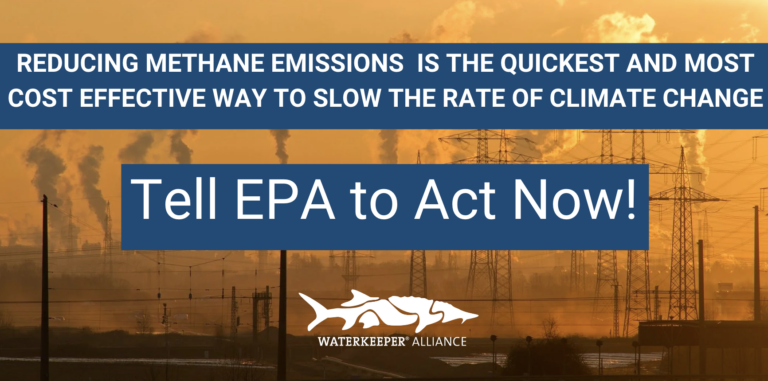Tell EPA to Finalize the Strongest and Most Durable Methane Regulations
By: Thomas Hynes

Earlier this year, the U.S. Environmental Protection Agency (EPA) proposed a new rule that would charge oil and gas companies for excessive climate-harming methane emissions. But they need your support! This proposed new rule is necessary to implement the methane waste emissions charge (WEC) that Congress directed EPA to create as part of the Inflation Reduction Act’s Methane Emissions Reduction Program (MERP) in 2022. This commonsense rule will impose a monetary charge that will hold the nation’s largest oil and gas polluters accountable for their outsized role in exacerbating climate pollution.
EPA’s proposed waste emissions charge will provide oil and gas companies with a powerful incentive to reduce emissions by fixing leaks, adopting new low-emission technology, reducing routine flaring, and more closely monitoring emissions. And it will have a big impact! EPA estimates that the waste emissions charge will cut nearly a million metric tons of methane by 2035, resulting in nearly $2 billion in climate benefits.
Quickly reducing methane pollution is one of the best and most cost-effective ways to immediately slow our current rate of global warming. Doing so is critical to advancing environmental justice and protecting our essential water resources from the impacts of climate change. Reducing methane emissions would also greatly benefit frontline communities, including many Tribes, which bear the burden of this pollution and its impacts on their water supplies. Anything less is a missed opportunity that will accelerate this crisis, and present dire consequences for the health of our families, our communities, our waterways, and the future of our planet.
That is why we are urging EPA to finalize the strongest possible safeguards against methane pollution, including the proposed WEC methane regulation. The waste emissions fee will help ensure oil and gas operators reduce methane pollution by assessing a charge on the largest polluters, i.e., those emitting 25,000 metric tons of carbon. Once implementation plans are approved and in place in every state, and if companies abide by commonsense methane standards that cut waste and pollution, they won’t pay the charge.
The fee would also incentivize companies to take action now to reduce emissions before being levied a fine. In fact, many forward-thinking companies are already retrofitting well sites with zero-emission equipment.
If we are going to reduce the impacts of climate change and effectively protect our shared waterways, we must take action today.
Thank you for taking action in support of a safer climate, healthier communities, and cleaner waterways.